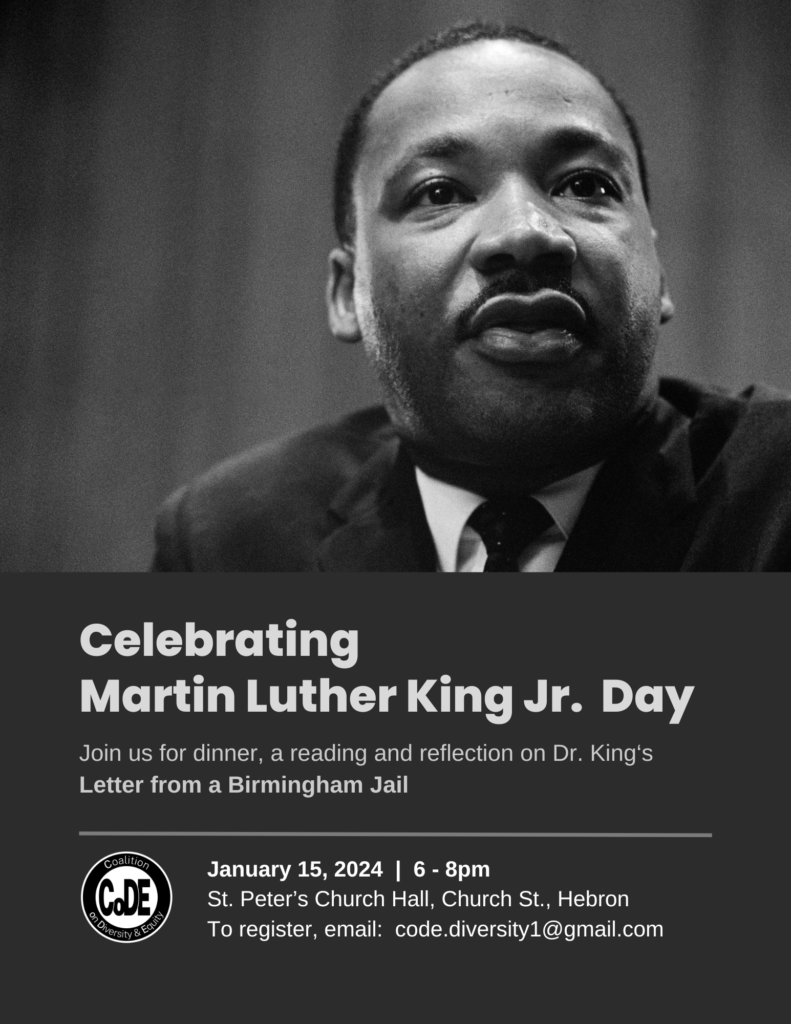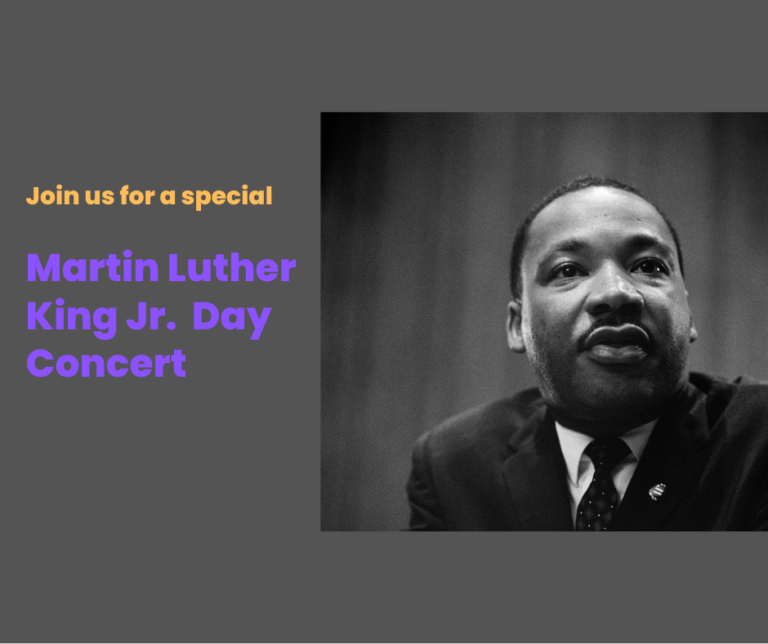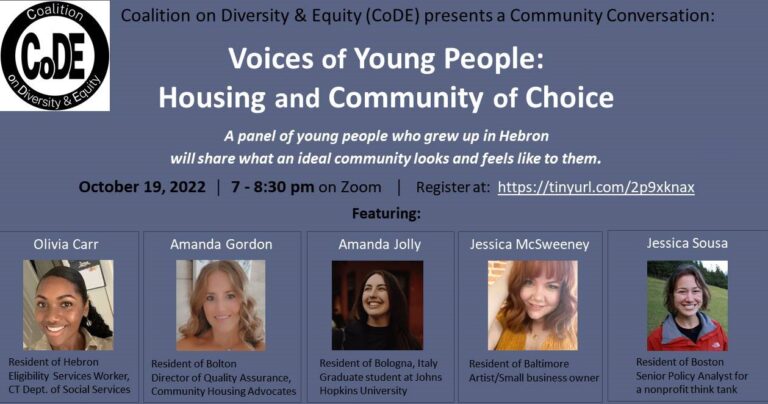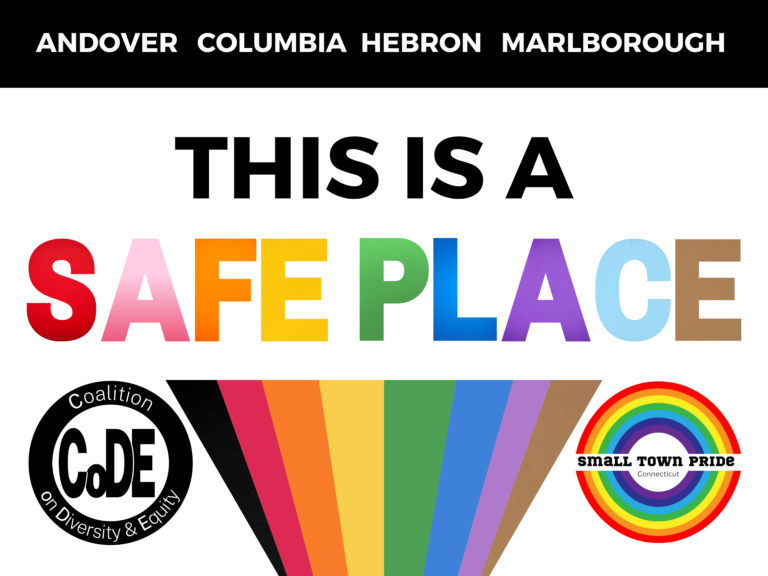The Parish Hall at St. Peter’s Church was full of energy the evening of Monday, January 15th as members of the community gathered to celebrate Martin Luther King Jr. Day. At CoDE’s second annual MLK Day event, we came together to enjoy dinner, to hear Dr. King read his iconic Letter from Birmingham Jail and to reflect on what it means to us today. We gathered in small groups where participants identified one thing they would take with them from this event. There were lots of ideas, including listening better, speaking up more, not being afraid to tackle tough topics, and holding people in power accountable.
Many thanks to St. Peter’s Church for offering their beautiful space, to Father Ron and several parishioners for making the delicious dinner, and to everyone who joined us for their attentiveness, engagement, honesty and commitment to racial justice. It was an evening of reaffirming our individual and collective commitment to justice and equity.

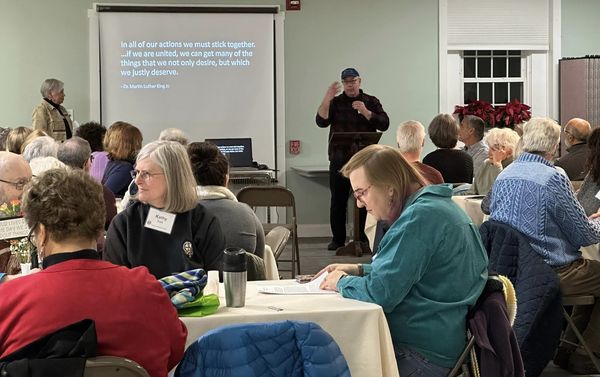
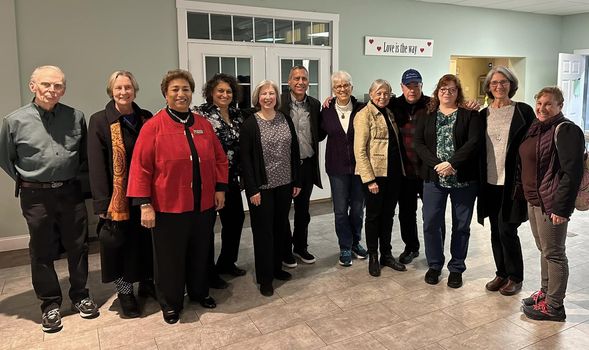
Area Communities Celebrate MLK Day
By Michael Sinkewicz
Rivereast New Bulletin Spotlight Story of the Week
January 19, 2024
The Coalition on Diversity & Equity (CoDE) observed Martin Luther King Jr. Day on Monday, celebrating the activism of one of America’s most prominent civil rights leaders.
Roughly 75 local residents gathered at St. Peter’s Episcopal Church in Hebron to this week to mark the holiday, which also fell on what would’ve been King’s 95th birthday.
Leaders of CoDE — an organization that represents Hebron, Marlborough, Andover and Columbia — emphasized the significance of gathering and reaffirming its goal of justice and equity more than 55 years after King’s death.
“I think it’s important to reinforce our core values and what we believe and want we want for our communities,” said Amy D’Amaddio, president of CoDE.
The night largely revolved around King’s nonviolent protests in Birmingham, Ala., in 1963, which resulted in him being imprisoned.
Following his arrest, eight white Birmingham clergy members published a letter largely criticizing King’s conduct, calling his actions “unwise and untimely.”
“When rights are constantly denied, a cause should be pressed in the courts and in negotiations among local leaders, and not in the streets,” they wrote in the letter, which appeared in the Birmingham News. “We appeal to both our white and negro citizenry to observe the principles of law and order and common sense.”
Largely scribbling on the edges of a newspaper while in his cell, King passionately responded to the clergy members, outlining the responsibility to break unjust laws.
His “Letter from Birmingham Jail” would become a significant document of the civil rights era.
“Never before have I written so long a letter,” King wrote. “I’m afraid it is much too long to take your precious time. I can assure you that it would have been much shorter if I had been writing from a comfortable desk, but what else can one do when he is alone in a narrow jail cell, other than write long letters, think long thoughts and pray long prayers?”
The original letter penned by the eight religious leaders was read aloud on Monday evening by the Rev. Brian C. Hardee of Hebron’s Gilead Congregational Church. But an audio recording of King reading his own response was played afterwards for the group in its entirely, a 40-minute endeavor that allowed residents to hear his inflection.
Some people likely haven’t heard his voice before, speculated Althea Carr, a CoDE member who was appointed by Gov. Ned Lamont to the state Martin Luther King Jr. Holiday Commission.
“It’s very timely today,” she told the Rivereast regarding the letter. “It was eye-opening that a lot of things that people didn’t know still apply today. So it was an important gathering and it gave us a lot of food for thought.”
Carr, a Hebron resident of over 40 years, highlighted the discernible lack of diversity in many neighboring towns; Hebron, for example, is roughly 95% white, according to census data.
“It’s limiting,” she said, adding that kids aren’t being exposed to different cultures and experiences. “We’re not preparing our children to work in a diverse world. We’re doing a disservice to all our children when we don’t have that diversity.”
As a Black woman, Carr said she often “felt like an endangered species” in town. She worked for over three decades as a teacher, including 20 years at Hebron Elementary School. Around 10 years ago — after she was retired — Carr recalled an instance when a local resident seemed perplexed that she was actually a former school teacher.
“He looked at me and said, ‘You mean you were a paraprofessional?’ And I was stunned. I said, ‘No I was a teacher.’”
While Carr stressed that she’s met plenty of upstanding individuals in the community, she shared that she likely wouldn’t have originally moved to Hebron if she had planned on raising a family, primarily due to the lack of diversity. However, 11 years into her marriage, she ultimately did have children, and recalled taking her son to Unity Plaza in Hartford to get his hair cut and to visit the next-door public library.
“He saw a Black librarian,” she said. “I wanted him to experience that.”
Taking Action
After listening to the audio recording of King’s letter, residents gathered in small groups and shared their thoughts with each other before listing a few takeaways in front of the entire hall.
D’Amaddio expressed that while King’s work has left an impression on many people, “there’s so much work to do still.”
“It seems like we’re going backwards sometimes,” she said, adding that moving forward, it’s important for people to be “intentional” with their actions. “We need people to stand up and be a voice for people who aren’t able to speak up or aren’t present.”
D’Amaddio added that by doing so, you can “create a situation where people who are being racist or not inclusive to be uncomfortable.”
CoDE’s vice president, Donna Jolly, explained that as a white individual, she frequently wonders if they’re approaching racial issues the right way, but feedback has been positive.
“Our friends who are people of color in our communities say they are grateful that we as white people are saying this is important to us — and not just saying it, but actually doing something about it,” she said. “Injustice is also our issue. Even if we don’t personally feel it, we do feel it because it’s our community and it’s our neighbors who are having situations happen to them or are suffering from institutional systemic racism. So it is our issue if we care to have a community that is diverse and vibrant.”
Regarding the letter itself, Jolly said she initially read the document for the first time last year. For her, it instilled that talking about issues was not enough; King was calling for people do actually take action.
“It was a bit of a wake-up call,” she said.
Carr stated that people should understand that “one individual can make a difference.”
She explained that even treating someone you encounter in the community with respect can be impactful.
“You don’t have to do anything big,” Carr said. “So we all have that ability to impact somebody else in a positive way.”
CoDE will also continue to serve as a resource for local communities, hosting events addressing an array of topics. In October, the group hosted a panel of local and state leaders to explore affordable housing options, and will likely continue the dialog in the months ahead.
“Every single time we have an event, afterwards more people want to be on our mailing list, more people want to be involved actively in CoDE because they see that there are other people that care about these issues,” Jolly said.
Looking out at the reception hall at St. Peter’s, Jolly pointed to the significant turnout and the potential that citizens will heed King’s advice.
“That reenergizes me and the work of CoDE,” she said. “We are always of a mindset to work with others but we have to always have that inner strength that we are going to speak up. If something happens, I want to have Dr. King’s voice in my ear saying, ‘Say something and be strong about it.’”
